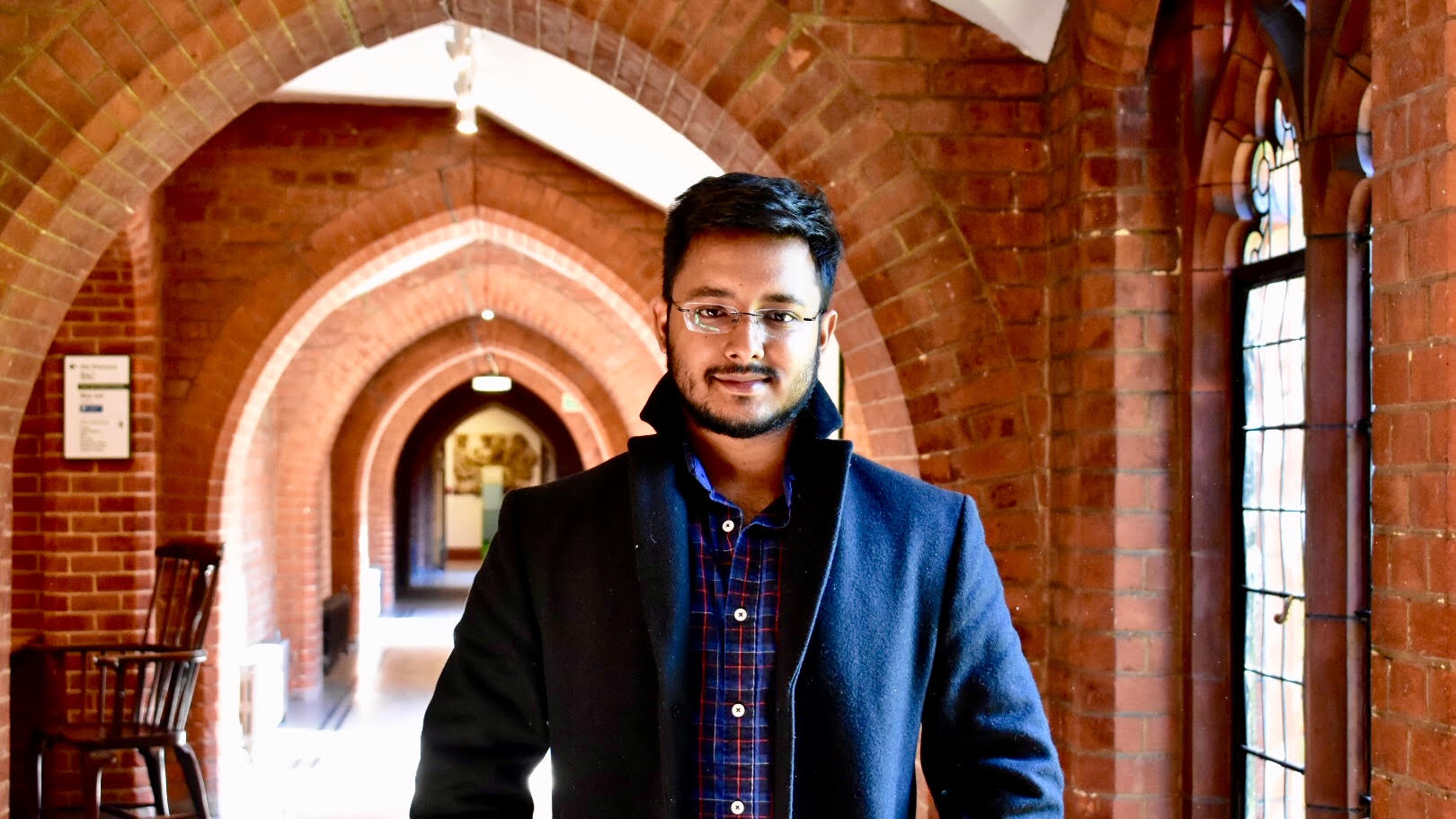
Ramit Debnath's PhD will focus on sustainable development of urban slums.
My goal is to build research and development around sustainable low-income urban development and to have a practical impact as well as keeping a foot in academia.
Ramit Debnath
Over the last 30 years India’s richest city, Mumbai, has seen a rapid expansion, including a programme to rehabilitate slum areas by moving residents to new high-rise buildings, built on the back of tax incentives for developers.
Those buildings, however, are now under scrutiny as research is beginning to show the health impact associated with housing people in stacks packed closely together.
Ramit Debnath [2018] is one of those involved in this research and he has been a lead authors on several academic papers on the results. He says: “The stacks were built without proper planning and with no sustainable rehabilitation policy.”
He has used his engineering skills on a research project focused on the well being of those who have moved to the new slums. The project measured air quality, flow and temperature at all levels of the buildings with the help of thermal sensors and maps the number of visits residents have made to their doctors. It was found that people with less access to fresh air were more likely to visit the doctor, particularly with respiratory illnesses.
For his PhD in Architecture, which he will begin in the autumn, Ramit will be looking deeper into theories around urban rehabilitation and the associated engineering processes. He wants to develop a new definition of wellbeing for low income slum dwellers which includes environmental factors such as air quality and access to daylight.
The PhD builds on his master’s work at Cambridge and involves an international multi-disciplinary research team, which includes a Cambridge fellow based in India.
Ramit’s interest in urban science stems from a project he did for his master’s in technology and development at the Indian Institute of Technology [IIT] Bombay.
That focused on how to improve indoor air quality in kitchens in rural areas through a change in building design. Many kitchens in rural areas burn firewood, which creates a lot of smoke pollution. Ramit’s project involved mixed-method research methodology and he says it helped to expand his understanding of the complexity of low-income socio-technical systems. He modelled different solutions and gained the simulation and modelling skills he has since used in an urban setting. “I was looking at the same problems, but on a larger scale,” he says.
An early interest in research
Ramit, who was born in Kolkata, first became interested in research at secondary school. At the age of 15 he took part in the National Children’s Science Congress, having won the state and regional rounds, and got to meet the president. It involved working on a research project on water purification which involved doing tests in rivers in the hilly north-east region of India near where he grew up. The water system there is not well maintained and there is a lot of water-borne disease.
Ramit has a bachelor’s degree in electrical and electronics engineering from Sharda University. His final year thesis was on the application of electrical engineering to sustainable development. The research involved monitoring faults in farmers’ pumpsusing low-cost ultrasonic sensors. His supervisor, who had graduated from Cambridge, was to prove influential when Ramit considered moving to the UK to continue his research. He also found he enjoyed doing a technical project that had social impact.
Ramit went straight into his master’s after finishing his degree in 2014 and from 2016-2017 he worked as an urban-system researcher at the IIT Bombay and spent some time at Stanford working on simulating conditions in the slum areas of Mumbai and investigating the linkages between public health and the slum built-environment. He was selected as a part of a global team to study the impact of globalisation on public health at Ben Gurion University of the Negev, Israel, and he also took part in ETH Zurich’s engineering for development summer programme where his team won first prize for creating an innovative carbon neutral low-cost construction material using algae.
Cambridge
He decided to continue his research and won a Commonwealth Scholarship to do an MPhil at the Centre for Sustainable Development at the University of Cambridge.
Even before he has started his PhD Ramit has had his research published in several peer review journals, including Energy for Sustainable Development, Habitat International, the Journal of Building Engineering, Clean Technologies and Environmental Policy and the Journal of Rural Studies.
While he has been at the University of Cambridge, Ramit – who is based at Churchill College – has been working on plans to develop a research and development start-up in India to advise on sustainable urbanism for low-income settlements.
He has also done a Judge Business School course in enterprise technology and says he is inspired by the work done by the Breathing-Buildings consultancy in Cambridge. “My goal is to build research and development around sustainable low-income urban development and to have a practical impact as well as keeping a foot in academia,” he says.

Ramit Debnath
- Alumni
- India
- 2018 PhD Architecture
- Churchill College
With a background in electrical engineering and computational social sciences, I design collective intelligence approaches to provide a data-driven, complex system-level understanding of barriers to climate action in the Anthropocene, their interactions, and how these translate to leverage points for policy and behavioural interventions at scale. Previously, I held positions at Caltech, Cambridge Computer Laboratory, International Energy Agency, Stanford University and IIT Bombay. I received MPhil and PhD from the University of Cambridge as a Gates Scholar.
Links
https://camcid.github.io
https://www.collectivedesign.group.cam.ac.uk/team.html
https://www.linkedin.com/in/ramit-debnath-b1980a204












